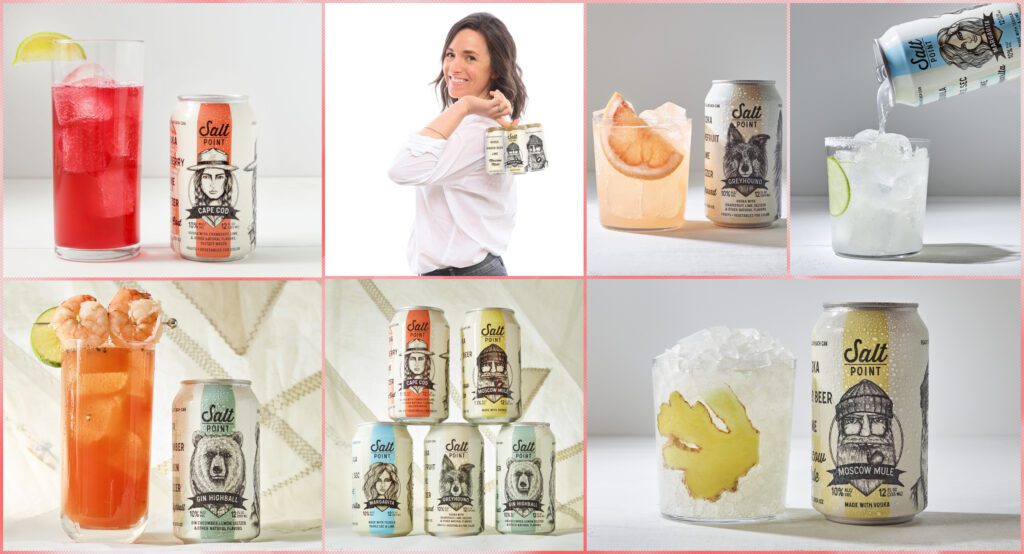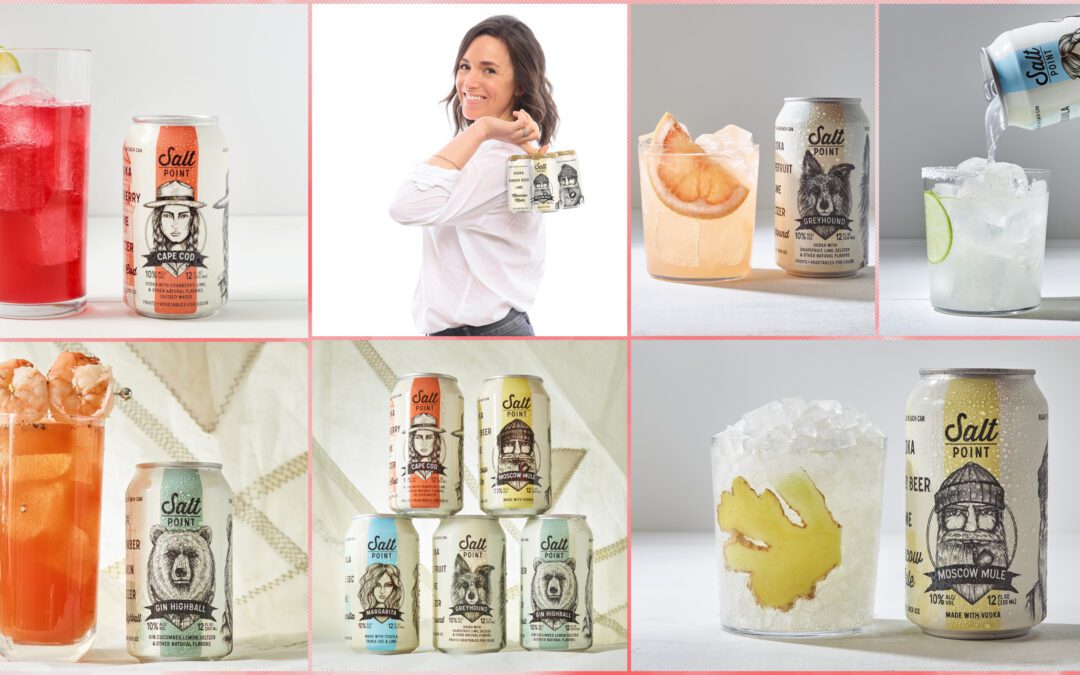
Let’s get an incredibly illustrative data point out of the way: according to the Distilled Spirits Council of the U.S., premixed cocktails were the fastest-growing spirits category in 2021, with sales surging to $1.6 billion – a more than 42% leap from a year earlier.
For those of us who have endured lengthy stretches of the past two, pandemic-laden, home-bound years unable to do many of the things we’ve been accustomed to, a sales surge for a new type of high-end, tasty canned cocktail comes as no surprise.
What is a revelation is the fact that one of the businesses pioneering that surge is led by a Marin native who has taken a path that’s been decidedly divergent from the rest.
Heather Wyatt went to design school and spent much of young professional career as an intermediary between clients and large fortune 500 companies, and she dipped her toes in the alcohol space in the latter part of that arc.
Given her proximity to the wondrous outdoors that surround us – hiking, beach camping, skiing – Wyatt found herself craving “a vessel to have a high-end cocktail experience after doing the activities that we love,” she says, noting that the company’s moniker is inspired by the Pacific Coast and specifically the natural grandeur of Salt Point State Park.
Wyatt took a journey of discovery, traveling the country and interviewing bartenders to get a sense of what might come after that early 2010s era of would-be speakeasies and mixology bars. She also experimented with premium cocktail mixings at home using fruits, vegetables and distilled spirits that could be served in a can.
“I really fell in love with the industry but found it was ripe for disruption and that there weren’t a lot of women in leadership positions,” she says. These were the early days of a sector that would eventually explode, with Cutwater Spirits starting in 2007 as part of Ballast Point Brewing in San Diego and eventually being acquired by Anheuser-Busch in 2019.
“I wanted to develop something that was ready to serve and premium, and there wasn’t anything quite like what I envisioned,” Wyatt says. “It was, ‘why hasn’t anybody done this? Why shouldn’t I try this?’ Famous last words – I have a very independent, entrepreneurial nature about me.”
Wyatt’s path less traveled was very much a solo venture at the outset, as she was the only person at the company for its first five years of its existence. “It’s been brick by brick,” she says. “No mentors, no family members – nothing – just learning and reading.”
Wyatt developed the prototype for her Moscow Mule and began selling cases of it out of the trunk of her car, constantly doing demos. “It was like selling bibles door to door,” she says.
Leveraging her local ties, Wyatt eventually landed shelf space at Whole Foods Market in Mill Valley in 2017, followed by subsequent support from Mill Valley Market, Paradise Foods (now Nugget) and Woodlands Market in Tiburon.
“Getting those local stores and having that mindshare in our backyard was just crucial for awareness,” she says.
As orders picked up, Wyatt, who owns 100% of the company, remained steadfast to hold the line and avoid outside investment and corporate involvement.
“The growth has been 100% scans at the register,” she says. “You could just see the pull happening from the market, and we really began ramping up production and innovation on additional cocktails.”
And then the Covid-19 crisis hit, and gathering with friends for dinner and drinks became verboten for lengthy periods. “It was devastating to see what happened to bars and restaurants,” Wyatt says. “But we weren’t in that space. We were in grocery stores. For us, Covid was like putting kerosene on the fire. The growth was shaped like a hockey stick.”
Wyatt’s determination to stick to her values included a fierce avoidance of infusing her beverages with additives like sodium bicarbonate or potassium sorbate, artificial preservatives that many of the major players in the canned cocktail sector use to extend the shelf life.
“For us, it comes through in the flavor,” Wyatt says. “We wanted Salt Point to be brand first, not product first.”
Salt Point’s line of cocktails has grown to a quintet. In order of appearance: Moscow Mule, Gin Hi-Ball, Greyhound, Margarita and now a Vodka Cranberry. And after all those years of flying solo out of the trunk of her car, the team has grown to 11 people.
Wyatt says she’s thrilled to showcase all five of her canned cocktails at the inaugural Mill Valley Music Fest on May 7th.
“Being from Marin, these types of events are few and far between, and opportunities, as a small company in the spirits industry, are very hard to get,” Wyatt says. “There’s often no consideration unless you’re linked to one of the major conglomerates.”
“But it takes patience, and I’ve got it,” she says. “This is a marathon for me – not a sprint. We’re so grateful to be part of this festival.”
MORE INFO ON SALT POINT CANNED COCKTAILS.

